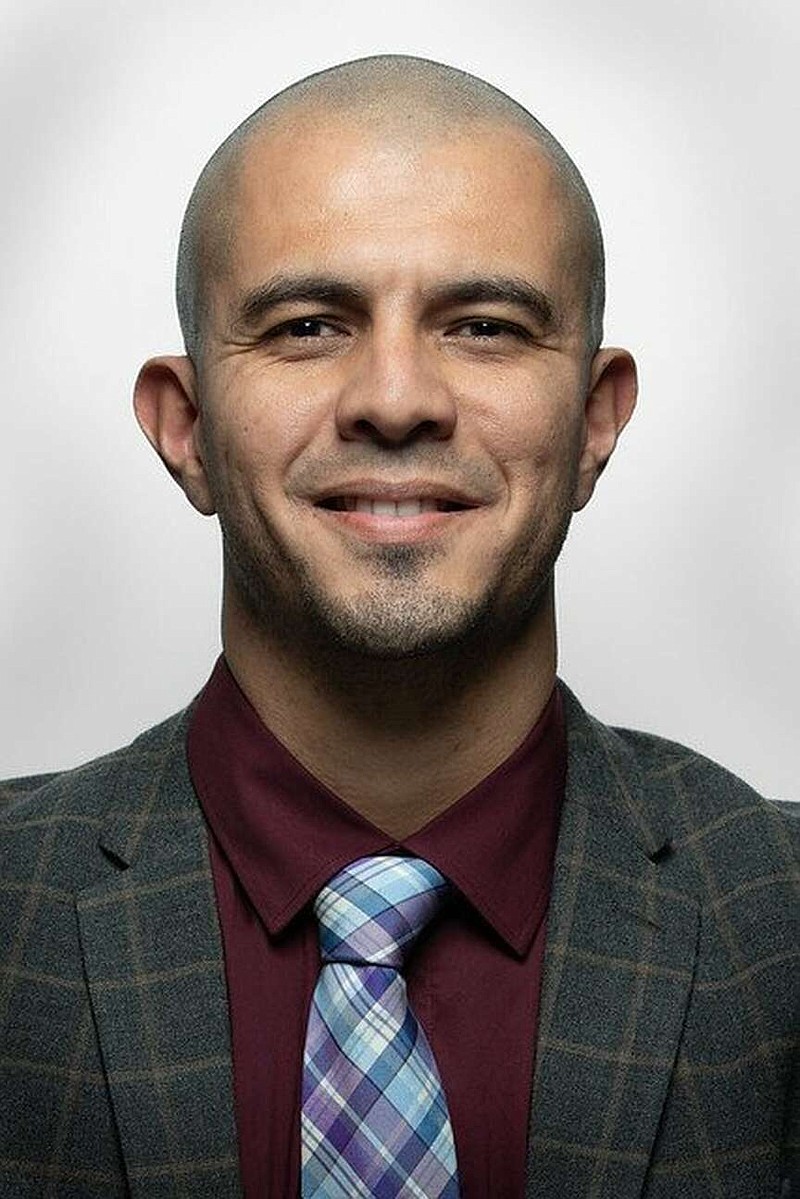Food scientist and food processing engineer Sun Ferreira's diverse background and international experiences will aid him in all three areas of the land-grant mission: research, extension and teaching.
Originally from Brazil, Ferreira recently joined the University of Arkansas System Division of Agriculture as an assistant professor in the food science department. He previously conducted post-doctoral research training in food and protein chemistry at the University of Minnesota, plant genomic associations at Washington State University and industry research and development experiences in Canada and Brazil.
Ferreira's initial research through the Arkansas Agricultural Experiment Station will include upcycling agricultural byproducts and alternative protein development using mycoproteins through biomass production. Mycoprotein is an alternative protein source with a meat-like texture made from a naturally occurring fungus.
"This rich tapestry of experiences vividly showcases his multifaceted, interdisciplinary training," said Jeyam Subbiah, professor and food science department head. "He will serve as a thermal processing authority for the state and the region, in addition to supporting food industries, the Arkansas Food Innovation Center, and the Market Center of the Ozarks."
Ferreira will teach Engineering Principles of Food Processing this spring through the Dale Bumpers College of Agricultural, Food and Life Sciences at the University of Arkansas.
Subbiah noted that Ferreira will also support the advancement of Arkansas food and beverage producers in innovation and sustainability through outreach with the Cooperative Extension Service.
The Arkansas Agricultural Experiment Station and Cooperative Extension Service are the research and outreach arms of the Division of Agriculture.
BEING THE BRIDGE
"Sometimes there are challenges bridging industry and academia and, having experienced both, I hope to be able to facilitate those bridging efforts," Ferreira said. "My goal is to merge my research and extension to have more applied efforts to support the community."
His technical expertise gathered during his undergraduate and graduate research is microencapsulation, using hydrocolloids and biopolymers. Pectin, used in making jellies, is an example of a hydrocolloid, while collagen is an example of a biopolymer. Ferreira won the best Ph.D. thesis award in 2020 for his research on this topic from the São Paulo State University in Food and Agrarian Sciences.
When he was not studying chemical engineering, microbiology, physics, mathematics and philosophy, Ferreira taught ballroom dancing and coached competitive cheerleading teams.
Ferreira said he took notice of the Division of Agriculture's focus on collaboration to support innovation. And one of the aspects of the job that attracted him to Arkansas is that it includes extension duties combined with teaching and research.
GENERATING NEW IDEAS
"Having this system that Arkansas has is interesting because it encourages you to think outside the box about new ideas and improve on how to communicate with broad audiences," Ferreira said.
Ferreira said he experienced scientific research early in his undergraduate education. While, at the time, other aspects of his academic career were not labeled "extension," that is what it was -- outreach to the public and local food businesses with science-based recommendations.
One collaborative research project that Ferreira has initiated is a U.S. Department of Agriculture National Institute of Food and Agriculture grant proposal with fellow food science assistant professor Mahfuzur Rahman and Bob Beitle Jr., senior associate vice chancellor for Research and Innovation at the University of Arkansas, to investigate mycoproteins using fungi and fermentation as a foundation for alternative meats.
"This project is interesting because it tackles some of the challenges encountered using plant proteins for meat alternatives, such as amino acid profile and functional properties," Ferreira said. "But there are challenges, like environmental impact, cost and scalability. Our goal is to tackle some of these challenges, such as the fermentation medium, using agricultural byproducts from soybean, corn and rice production."
In his teaching role, Ferreira said he also looks forward to the interchange with industry professionals and graduate students, where he can foster discussions that will lead to innovation.
"We are excited to welcome Dr. Ferreira to the Food Science Department," said Renee Threlfall, food science research scientist with the experiment station. "With his expertise in food processing, he will provide a major contribution to research, teaching and extension efforts for our Arkansas farmers and entrepreneurs interested in value-added foods."
To learn more about Division of Agriculture research, visit the Arkansas Agricultural Experiment Station website: https://aaes.uada.edu. Follow on Twitter at @ArkAgResearch.
John Lovett is with the University of Arkansas System Division of Agriculture Arkansas Agricultural Experiment Station.

